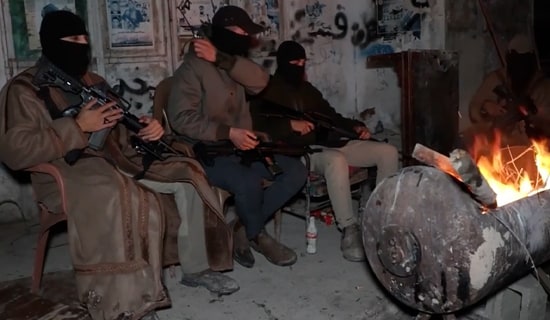
Following are excerpts from an interview with Abbas Khidr, an Iraqi-born poet currently living in Germany, which aired on Alaan TV, on June 19, 2009.
Interviewer: What was your interrogation like, Abbas?
Abbas Khidr: The Iraqi interrogation? The Iraqis do not interrogate, brother. All they do is torture. For example, if you give them a piece of information, you get yourself into trouble, because they want more information. They begin by asking you: "Have you heard about us?" Have you heard about the torture in Iraqi prisons?" The interrogator asks you that, in these exact words. "Do you confess or not?" If you say that you are innocent, it begins. There are various methods of torture. There is no interrogation – only torture. They want information and names. The most important thing is names. You are forced to give names, and sometimes these are your friends, which is a problem because you are about to destroy their lives. So you have to endure the torture, and then the torture increases.
The torture methods included what was known as "hanging." They hang you from the ceiling for three or four hours. To this day, I have a problem in my shoulders. They are dislocated here. This is "hanging." Foot whipping is carried out on a chair.
Another method is called "Al-Khayganiyya" after the Iraqi interrogator who invented it. They tie you to a chair like a lamb and use a rod to beat your hands. I recall that once, an interrogator was beating me. He brought three rods, and told me to choose between the thick, medium, and thin rods. I did not know which was most painful, so I chose the thin one. How stupid of me – the thin rod is more painful. He said: "Abbas, next time, choose the thin one, you idiot! The thin one is more painful." It is true. The thin rod hurts you more.
The worse kind or torture was electric shocks. I could endure anything but electric shocks. They really debilitated me. I was afraid I would give the names of many people. Electric shocks... Dear God... no language in the world can describe this.
At first, when they torture you, you become very weak, but after a couple of days, the body learns to tolerate the beatings. It even learns to tolerate the electric shocks. A person who endures the first three days will endure the rest.
But there are other methods of torture – mental torture, by means of starvation. They would give us one piece of bread a day, which was our breakfast, lunch, and dinner. How can you live on a single piece of bread? Sometimes, they would starve you for days, and then they would take you to an office, put some kebab in front of you, some warm bread, grilled onions and tomatoes, and they would say: "Confess, and we will give you all this!" I know someone who was starved for a week, but did not confess. They starved him for another four days, and then took him to the office, put the kebab in front of him, and asked him: "Do you confess?" He said: "No." He returned [to his cell], but after five minutes he couldn't bear it, and he started banging on the door, and said he was willing to confess. He gave them the names of forty people who were with him in the organization. Forty people! Within a week he committed suicide.
There are unspeakable methods of torture. Sometimes, they use rape – what we call in Iraq "the bottle." They make you sit naked on a bottle that impales you... They strip you. This is the cruelty of our country, I'm sad to say.
[...]
I got out of prison on May 25, 1995, because of the 1995 general amnesty for political prisoners in Iraq. As I told you, the charges against me were not serious ones. Compared to the real political prisoners, my charges were minor.
Interviewer: What did they accuse you of?
Abbas Khidr: Distributing illegal books. The real political prisoners were executed. In 1995, only the small fry were left, and I was one of them. It was a strange moment, after over two years of living underground, without seeing the light of day. It was a strange moment – seeing the sun for the first time in two years. After getting out of prison, my dream was to remain in Iraq. I was not thinking of leaving Iraq, despite the state of mind I was in after getting out of prison. There were some very difficult moments. You leave the prison behind, but you carry it within you, in your mind.
[...]
I decided to go to Europe. By some miracle, I obtained a Turkish visa, and when my Iraqi passport expired, I went by foot from Turkey to Greece. I was jailed more than ten times in several countries. I tried to escape from Libya, and twice they caught me. I was jailed in Tunisia as well, and they stamped "Entrance to Tunisia forbidden" in my passport...
Interviewer: You're a genuine Ibn Battuta...
Abbas Khidr: Yeah. I was jailed about five times in Turkey, twice in Greece... All in all, it took me about a year to get from Turkey to Germany – by foot. I was a stowaway in cars, trains, ships, and so on.
[...]
It was not my intention to attack a specific writer, intellectual, or poet – Arab or Iraqi. My intention was to criticize a culture that dominates the Arab world – a militaristic culture, a culture of a one-man or one-party [rule], a culture of war. I am aware that the Arab culture, and first and foremost, the Iraqi culture, is dominated by the words "death" and "martyrdom" more than the words "life" and "human being." This was precisely my problem with Iraqi culture in the 1980s, and my book deals with the 1980s, more or less. The problem is the glorification of the Iraq-Iran war by many Arab intellectuals and writers, who lauded Saddam Hussein. They refer to the "Iraqi martyr" in legendary terms. A man was killed – what "martyr" are they talking about? While people were crying in the streets, Arab intellectuals were talking about "heroism," "glory," and so on. None of them were talking about the bereaved families.
[...]
I found it strange that renowned Arab poets and authors kept talking about love and freedom. They went to Iraq and lauded Saddam Hussein. Take Nizar Qabbani, for example. He wrote that the most beautiful poetry emerges from the [Iraqi] Revolutionary Council?! Is it conceivable that the number one poet of the Arabs mentions in the same breath poetry and the Iraqi Revolutionary Council, which waged war and executed people in the streets in Iraq?!
Take a poet like Su'ad Al-Sabbah – the Kuwaiti princess who came to Iraq, and wrote a poem dedicated to Saddam Hussein... or rather, she wrote an article dedicated to Saddam Hussein. She wrote: "A poet who does not write in favor of the war and the leader is a traitor. We must persecute him and burn all his poems." Imagine that this woman, who should be talking about emotions and beauty, talks about burning and killing?! She was Kuwaiti and she said this in the 90's. She wrote in a poem about the sun and the sea: "... I feel like marrying a sword." Sister, what is this? What is this cruelty? You want to marry a sword?! She dedicated the poem to Saddam Hussein.













